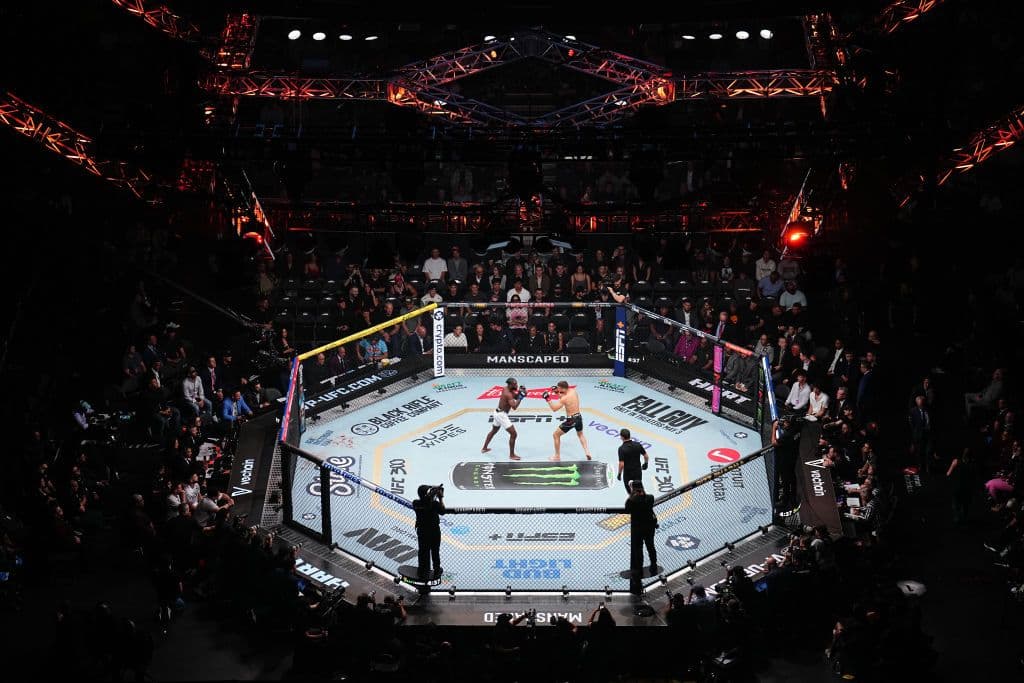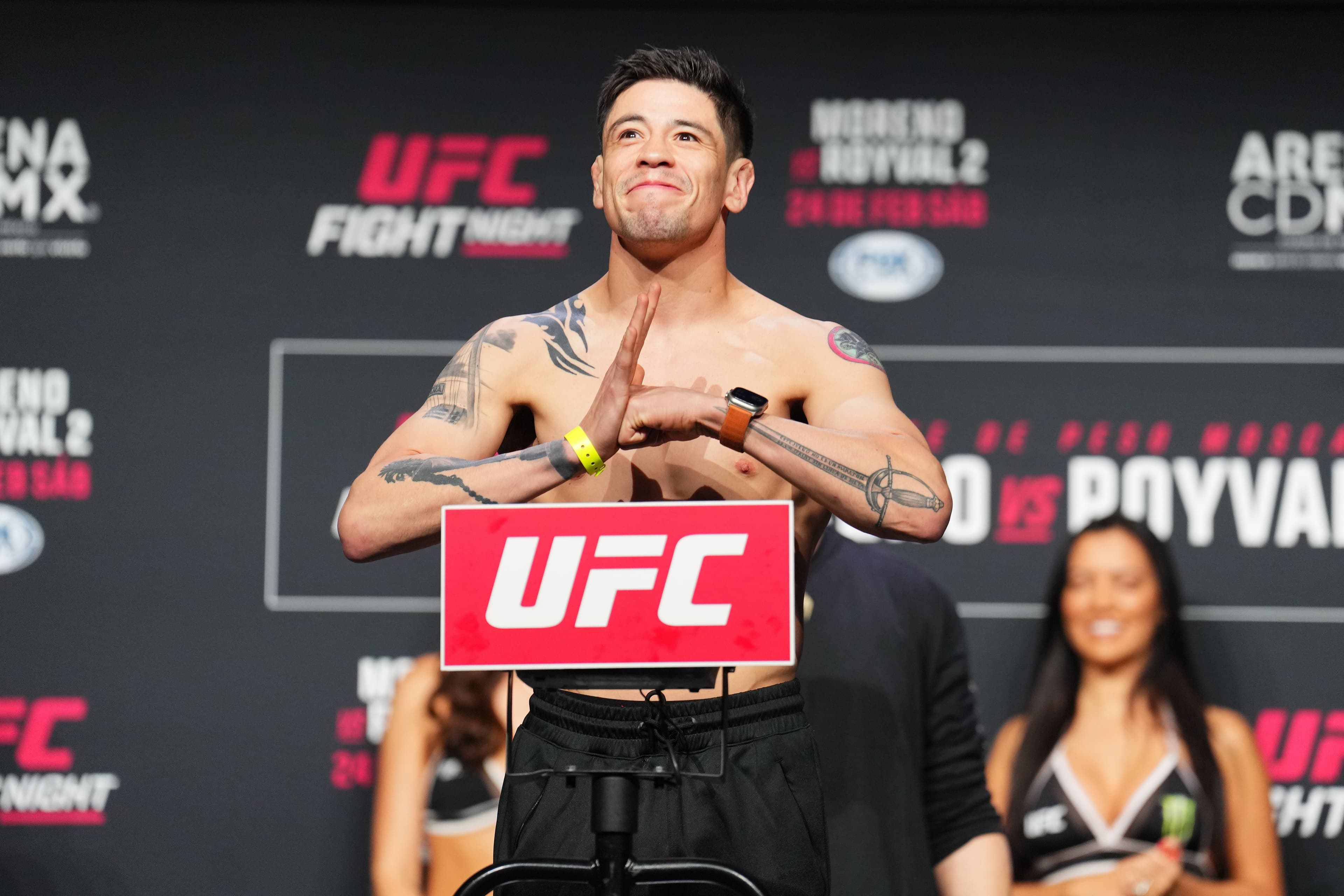MMA
How do MMA Fighters Cut Weight?
Weight cutting is a common practice in MMA and boxing, where fighters shed significant weight before a fight to compete in a lower weight class. The process typically involves water manipulation, intense sweating, and diet restrictions. MMA fighters often cut more weight than boxers due to the larger gaps between weight classes and the nature of the sport, which involves grappling.

Jose Aldo of Brazil poses on the scale during the UFC 307 / Getty Images
How Do MMA Fighters Cut Weight? Get the Inside Scoop!
Cutting weight in combat sports plays a huge factor in how fighters actually perform whether inside the octagon or in the ring. In order to have maximum performance levels, a fighter must cut weight successfully; there is such a thing as a bad weight cut, and even though you still may make weight, the struggles to make it may come back to hurt you during the fight.
The process of cutting weight is very strict on your body, but nowadays fighters actually hire people to help them cut weight such as nutritionists. Not only do they help reduce a fighter's weight, at the same time, they are helping them to fuel their body for their training and fight.
One of the things fighters do to cut weight is water manipulation. This method is done by reducing fluid intake, as well as sweating excess water out of their body by the use of saunas, sweatsuits, and extremely hot baths. This method is done during fight week when they need to make weight, usually starting a couple of days before the weigh-ins.
Support from Nutritionists
Another method they use is diet restrictions. As mentioned previously, nowadays most fighters have a nutritionist in their camp to help with the weight cut because they are the experts. They know what unnecessary foods to cut out of a diet, whilst maintaining a healthy diet which can fuel a fighters training, sparring and fighting.
While the initial cutting weight part is huge, the rehydration process after weighing in is perhaps even more key. Some fighters can rehydrate immediately by getting a huge jug of water and a decent sized meal down them. However, there are other fighters who struggle with the rehydration process naturally, thus taking their time and having little bits of water and food but more frequently. Failing to refuel your body correctly can lead to fighters getting ill, this is why it's important for fighters to know their body.
Difference Between Cutting Weight in MMA vs Boxing

UFC Front View
Believe it or not, there is a difference between cutting weight in MMA as opposed to boxing. One of them is simply the difference in size between each weight. In MMA, there is 10-15lbs difference between each weight class, whereas in boxing the gap is much shorter, sometimes 5lbs or sometimes 7lbs. Therefore, it is much easier for fighters to choose which weight they want to make. Whilst for MMA fighters, most will have to cut that bit extra to even get inside the weight limit, due to the gap between weights being much greater.
The main reason as to why MMA fighters are very particular in terms of the weight division they fight in is because they don't want to have a size disadvantage when it comes to grappling. This is why, even if they need to cut an extra 4lbs to make weight, they will do it, because by the time they rehydrate, they may have a 10lbs advantage in the cage over their opponent on fight night. In boxing, they don't have to worry about being overpowered in grappling.
Advantages of Cutting Weight

Brandon Moreno//Getty Images
One huge advantage of having a successful weight cut and rehydration process is that you can outweigh and be far stronger than your opponent on fight night. Additionally, your energy levels could be much better than your opponents.
Another advantage of being much bigger than your opponent is that you could absorb a lot more damage than your opponent that is much lighter than you.
Importance of Rehydration

Charles Oliveira of Brazil secures a rear choke submission against Justin Gaethje in the UFC / Getty Images
The main disadvantage of cutting weight badly is that a fighter will lack energy and stamina from a bad weight cut and rehydration process, because it can leave a fighter feeling fatigued even before the fight has started, therefore affecting energy levels.
Following on from the first point, if a fighter is feeling depleted then they will be more prone to suffering muscle injuries, which could severely impact their performance even more.
Lastly, if your body is feeling fatigued, then no doubt your mind will be feeling the same. Being mentally fatigued could lead to poor decision-making and that could lead to you making some amateurish mistakes. Additionally, your reaction time will be massively impacted if you aren't feeling fresh in the mind.

Jake Staniland is a sports writer who excels in covering a wide range of sports: football, combat sports and the NFL - All three subjects are his lifelong passions.
Jake is a boyhood Sheffield United fan, which is often a curse that he thanks his family for. His favourite Blades player ever is Billy Sharp